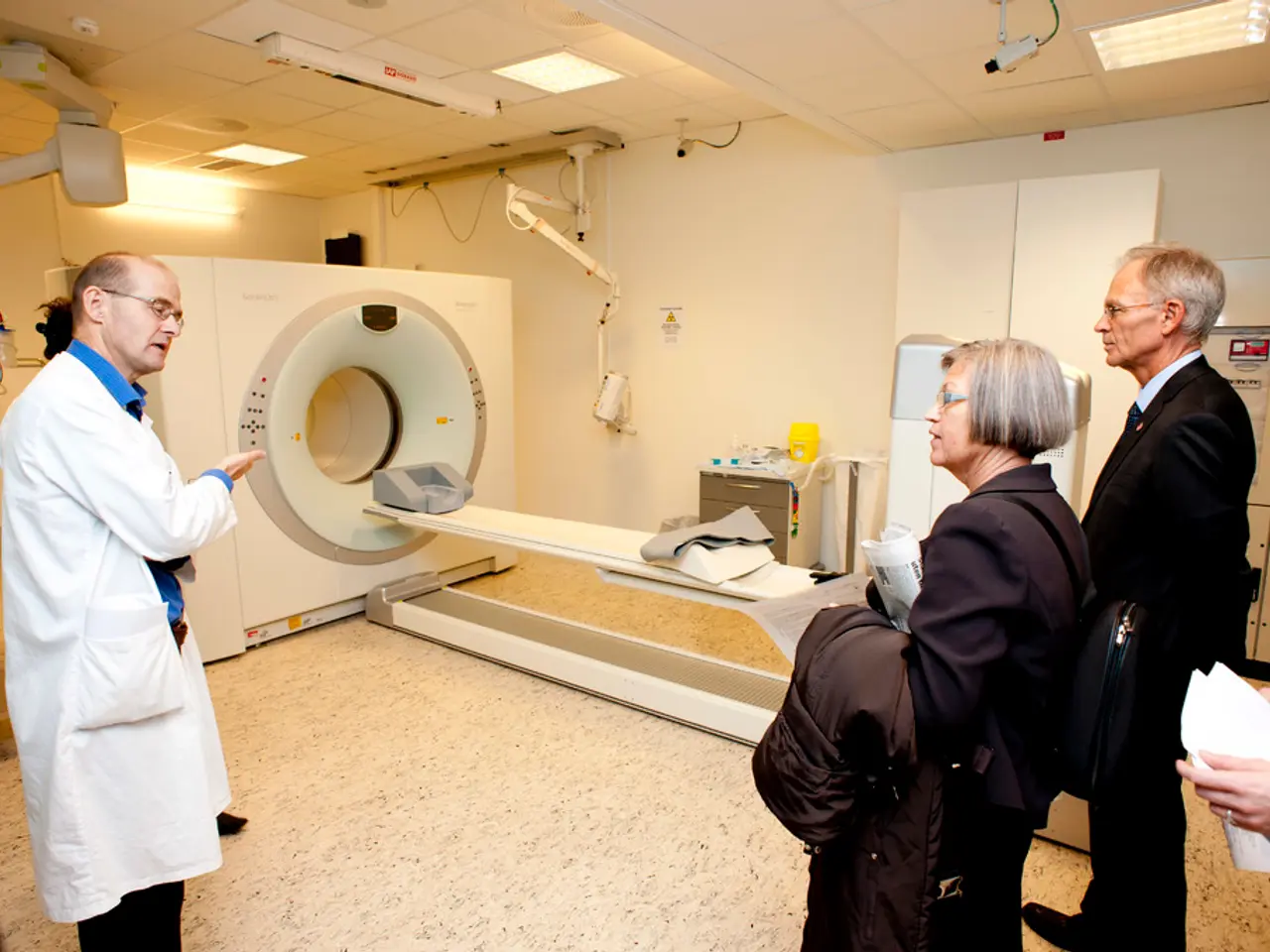COPD Early Warning Signs: Identifying Symptoms and Appropriate Medical Consultation
Chronic Obstructive Pulmonary Disease (COPD) is a group of conditions that includes emphysema and chronic bronchitis, often caused by prolonged exposure to lung irritants such as cigarette smoke, secondhand smoke, and environmental pollutants. It's crucial for individuals to recognise the early symptoms and discuss them with a doctor to get a diagnosis and appropriate treatment.
Early-stage COPD is characterised by mild shortness of breath during exertion, occasional coughing, and rarely, sputum production. However, it's important to note that these symptoms can also be associated with other conditions such as asthma, aging, or acute illnesses.
Asthma, on the other hand, is primarily caused by an allergic reaction or sensitization to triggers that cause airway inflammation and constriction. Symptoms include episodic shortness of breath, wheezing, coughing, and chest tightness, often triggered by specific stimuli.
As people age, natural physiological changes can lead to reduced lung function, causing gradual shortness of breath on exertion, but typically lacking the chronic cough and sputum production seen in COPD.
Acute illnesses, such as pneumonia, are caused by infections and present with sudden onset of fever, cough, possibly producing sputum, and shortness of breath.
Distinguishing early-stage COPD from these conditions requires careful consideration of the underlying causes, symptoms, and diagnostic approaches. Confirmed by spirometry, which measures airflow obstruction, a mild COPD diagnosis is typically made when the FEV1/FVC ratio is less than 70% and FEV1 is 80% or more of the predicted value.
The International Primary Care Respiratory Group recommends testing for COPD for anyone aged 35 or above who smokes, and for anyone experiencing symptoms of COPD. Many people with COPD do not seek treatment until their disease has reached the more advanced stages.
Knowing the early signs and symptoms of COPD means that people can seek medical care as soon as possible. Symptoms such as unexplained fatigue, shortness of breath during activities that did not previously cause this symptom, an increased number of respiratory infections, making and coughing up more mucus than usual, sleeping problems, chest tightness, and wheezing can all be indicative of COPD.
However, it's essential to remember that these symptoms can also be signs of other medical conditions. If a person experiences these symptoms, they should not drive to the emergency room but should call 911 for an ambulance or have someone else drive them. A flare-up of COPD can be life-threatening and requires emergency medical attention if a person experiences symptoms such as being unable to talk in complete sentences due to shortness of breath, high fever, blood in mucus, feeling very weak, slurred speech or confusion.
Early diagnosis and treatment can help keep COPD from getting worse. If you smoke or have been exposed to lung irritants, it's essential to discuss your concerns with a healthcare professional and consider getting tested for COPD.
- A naive individual might overlook the early signs of a chronic disease like COPD, as symptoms such as mild shortness of breath during exertion, occasional coughing, and sputum production can also be associated with other medical-conditions like asthma, aging, or acute illnesses.
- Science has identified COPD as a group of chronic lung diseases, including emphysema and chronic bronchitis, often caused by prolonged exposure to lung irritants, which necessitates prompt medical-attention and treatment to manage the condition effectively.
- Persons diagnosed early with COPD can take advantage of fitness-and-exercise, and health-and-wellness practices to maintain their lung function and improve their overall well-being, as many chronic-diseases, such as chronic-kidney-disease and respiratory-conditions, can benefit from proactive lifestyle changes.
- A medical-professional may recommend spirometry tests for individuals aged 35 or above who smoke or exhibit symptoms typical of COPD, ensuring early detection and treatment for the disease, preventing it from progressing to more advanced stages.
- Despite being a manageable chronic-disease when treated early, many people with COPD neglect seeking treatment until their condition worsens, putting themselves at risk for complications and potential life-threatening emergencies, such as a flare-up that may require immediate medical attention.




